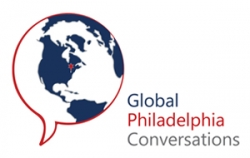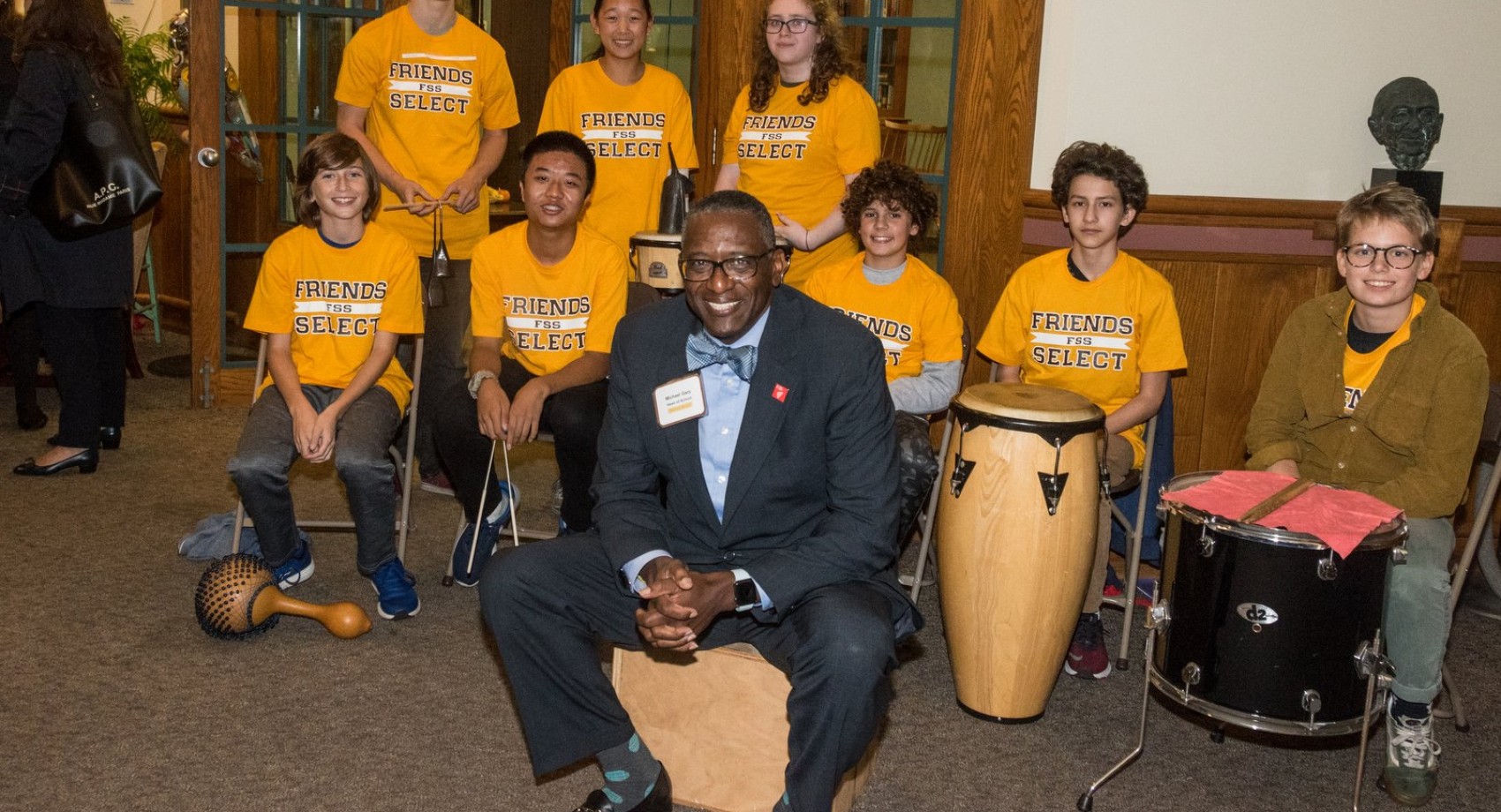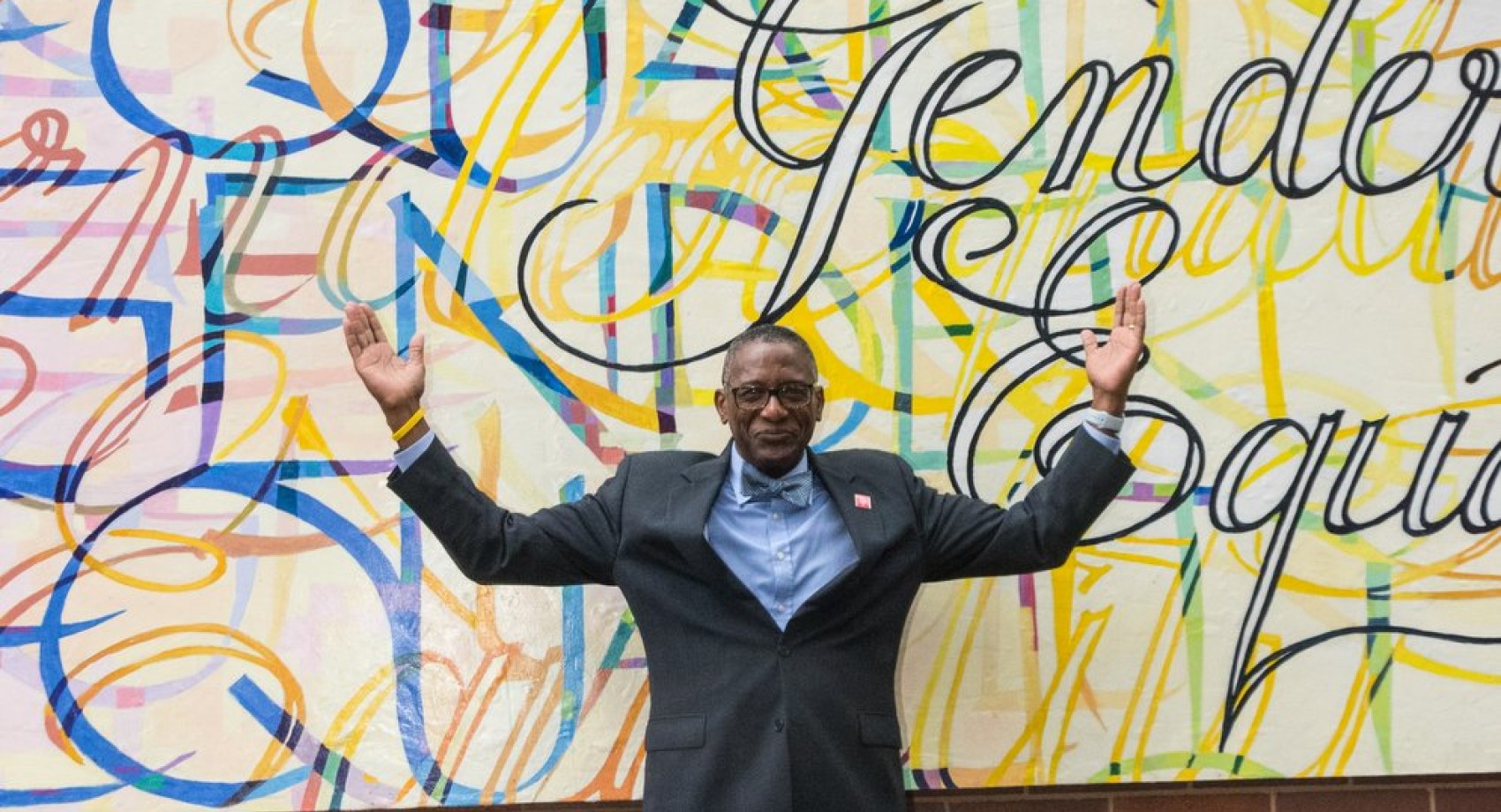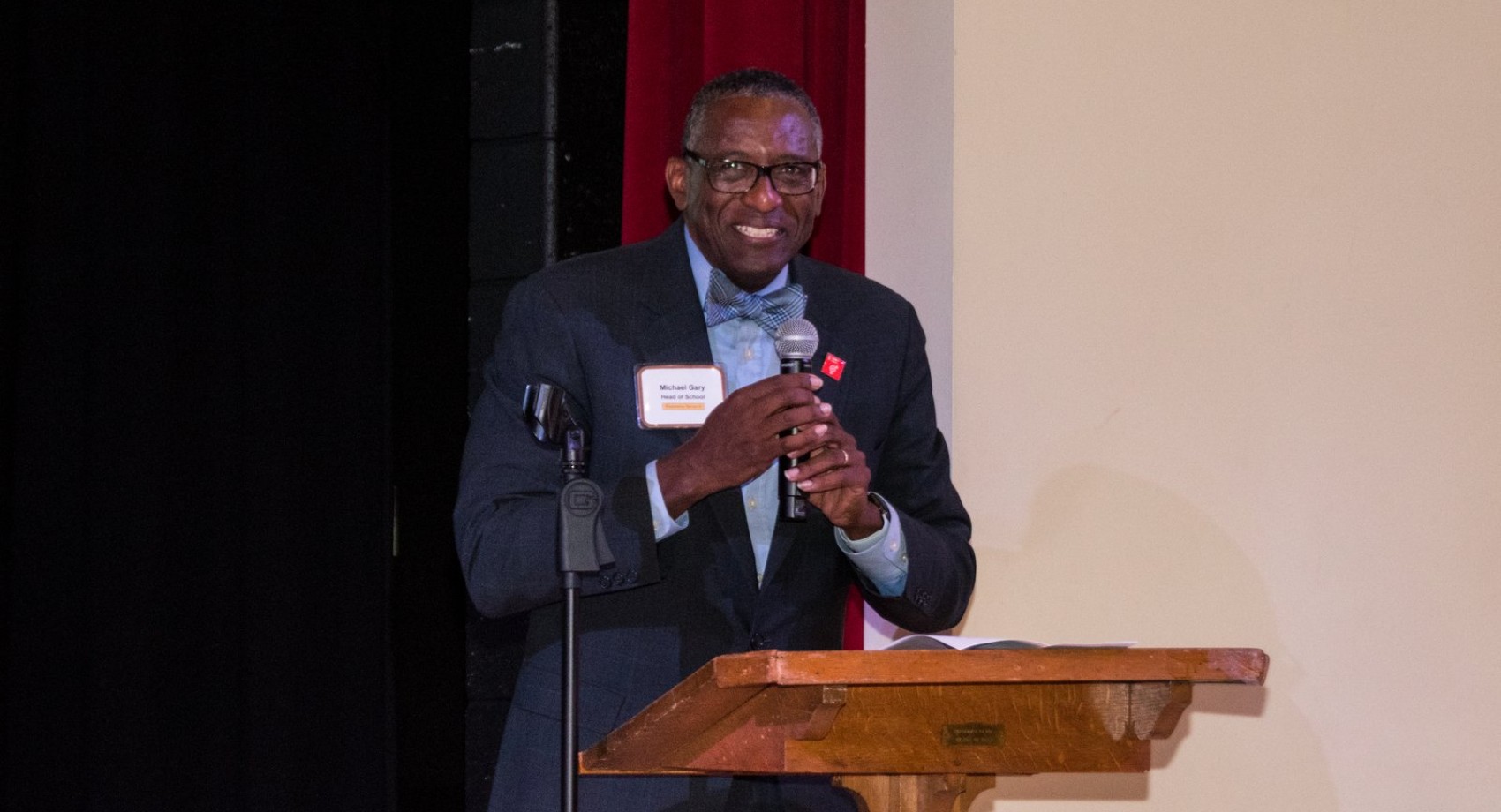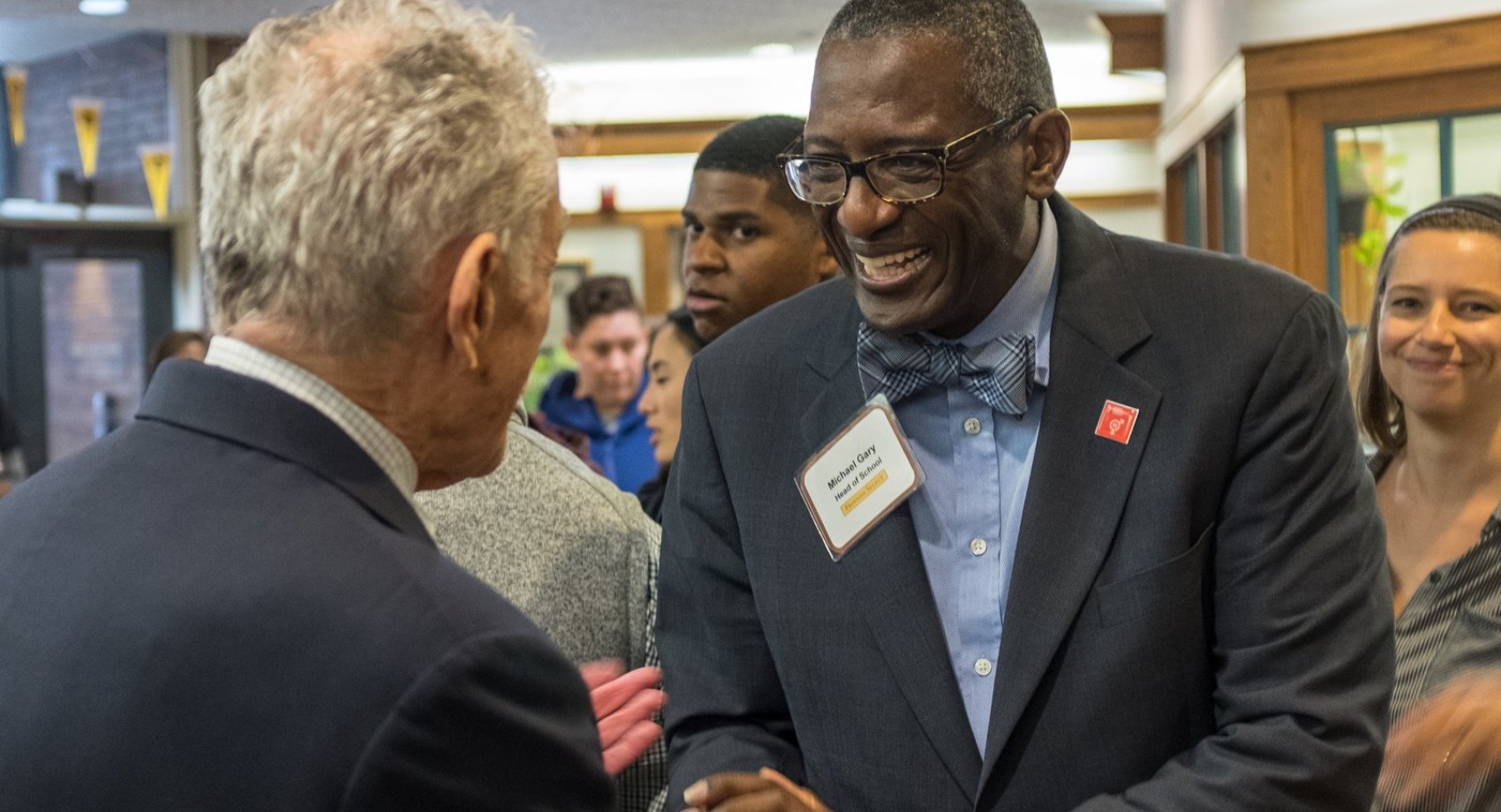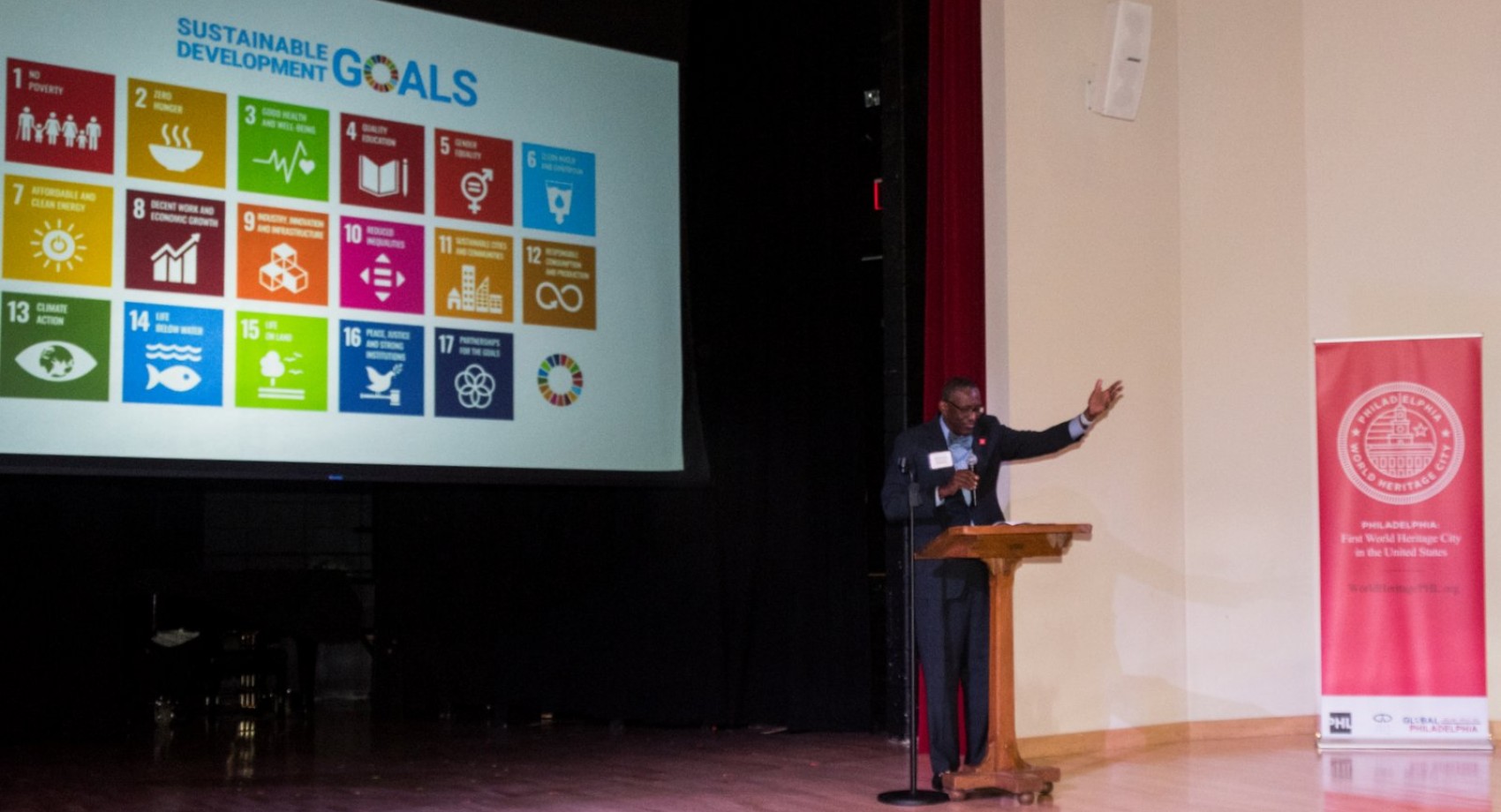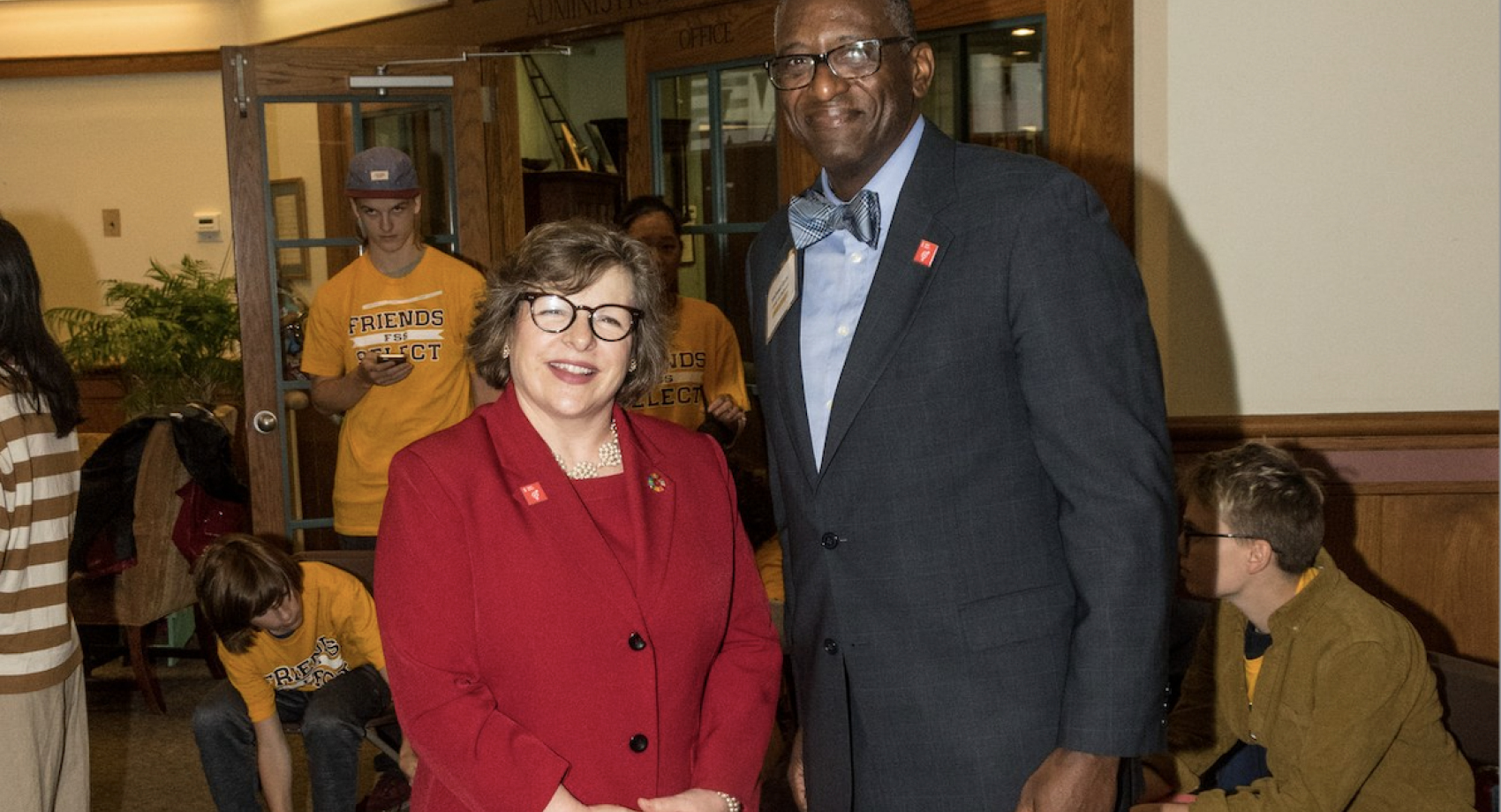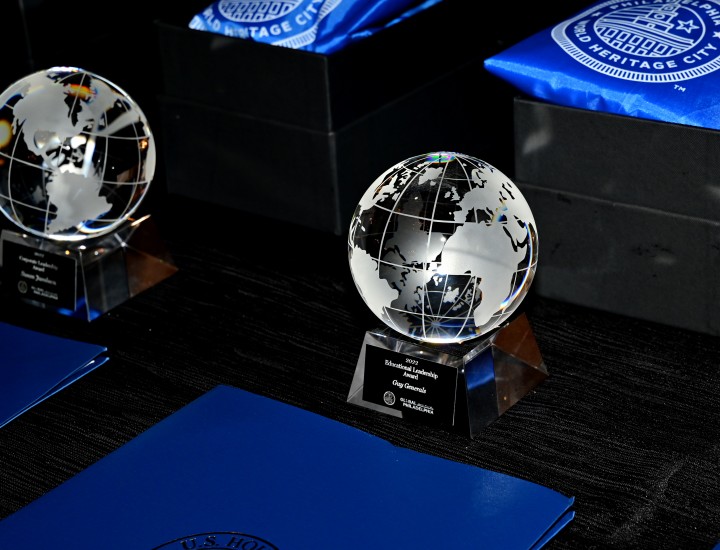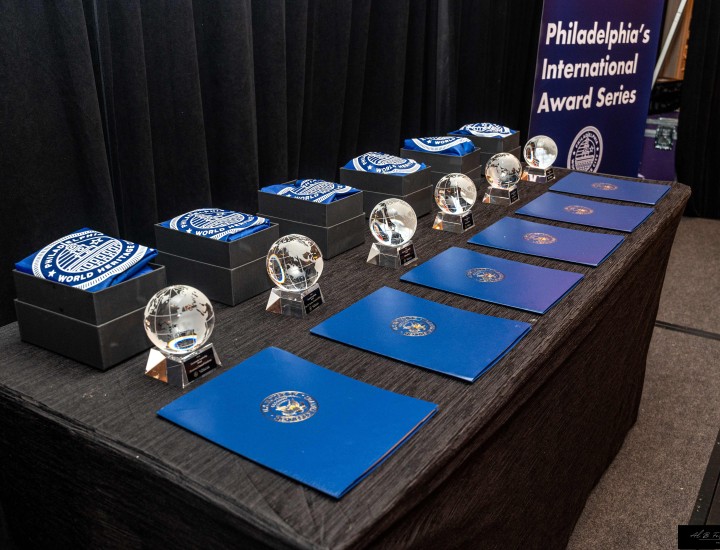A Global Conversation with Michael Gary
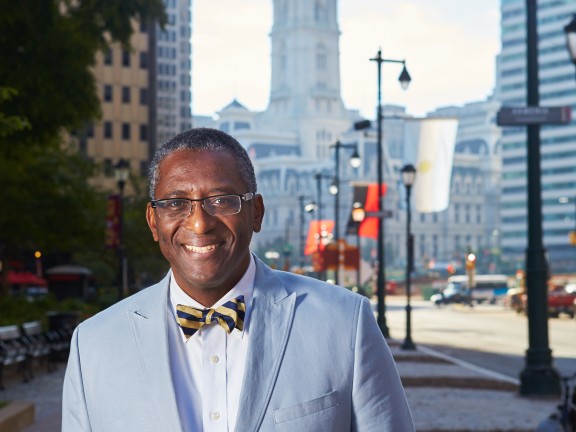
Michael Gary, Head of Friends Select School since 2016 and our 2023 Educational Leadership Globy Awardee, is a steadfast advocate for multicultural education. His leadership has been instrumental in shaping the school's unwavering commitment to diversity and inclusion. During our conversation, we explore his professional background and innovative initiatives, such as the Director of City Curriculum and the creation of "nests" for Friends Select faculty and staff, fostering brave spaces for cross-cultural dialogue within the institution. We also delve into the school's dedication to global learning opportunities and its efforts to provide access to students from diverse Philadelphia communities.
Furthermore, Michael's insights offer invaluable lessons for aspiring educational leaders looking to make a positive impact in their schools and communities. Beyond his role at Friends Select, his extensive career background includes admissions and financial aid positions at Phillips Exeter Academy and The Peddie School, as well as experience in the corporate sector with Aetna Life and Casualty and KGA Advertising Agency. Michael's academic credentials include a BA from Trinity College and a Master’s in Education from Harvard University. His active involvement in various educational associations and service on multiple boards underscores his unwavering commitment to advancing education in all its facets.
The Global Philadelphia Association is honored to have Michael Gary as our Educational Leadership Awardee for the 2023 Globy Awards.
***
Jessica Barber: You spent much of your career in the New England states. Why the move to Philadelphia?
Michael Gary: I was introduced to Philadelphia by the consultant that Friends Select had hired to look for a new head of school. It was a national search, likely an international search, but the consultant knew me from his years of working up in New England. Knowing a little about me, he thought it would be a wonderful match. He introduced me to Friends Select and when I had the privilege of reading about it and visiting the school I fell in love with the community instantly.
What does the Friends Select school do differently? What made it a good fit for you?
As I visited Friends Select for the first time, I came on a Saturday morning when there wasn’t a child in the building. I had to pass all of the lower floor classes to make my way up to the library. At the lower school level, they love to have their bulletin boards looking tight with posters, quotes, and other cute things, but what I saw was a lot of me on their boards.
That’s just who Friends Select is. Friends Select is about social justice, diversity, and inclusion. What I was witnessing was Friends Select being Friends Select, the Quaker School that it is, a champion of peace.
That really took me aback because up in New England, the schools in which I had the privilege to work led with academics and the cognitive. Friends Select leads with the heart. It leads with “Who are you?” That was a nice, eye-opening switch for me.
When you first arrived in Philly, what were you setting out to accomplish? How was the educational landscape in Philadelphia different from the schools you had previously worked for, whether it was in teaching or administrative departments? Can you build upon that a bit?
I’ll just add that when I came to Philadelphia to be head of school, it was simply Michael Gary who wanted to reciprocate. I grew up in the inner city projects in a section of New Haven where they tell the Yale students not to go because it’s too dangerous. I’m the youngest of six and raised by a single mom. I’m someone who had to talk myself into an independent school like Friends Select. Clearly, it wasn’t based on my scores.
I was in education in a New England school for a while before becoming head of school, but I always knew that if I had the privilege to hold that position, then I wanted to reciprocate. It was an independent school experience that altered the trajectory of this little boy’s life. That’s why I wanted to be head of school at Friends Select. In an urban setting, I see a lot more Michael Garys not just in my school, but in my neighborhood and my surroundings, which was far different from my New England schools. So basically what I wanted to do was reciprocate and change the lives of others the way my life was changed.
Transitioning from the corporate world to independent school education is a significant shift. What inspired you to make that transition, and how has your background in marketing and advertising influenced your work in education?
When I was in the corporate world, I was being groomed to be an officer at a Fortune 500 company. I switched to advertising as an account executive, and then my son Andre was born around the same time. As I shared with you before, I grew up without a dad. When he was born, I was working such long hours to the point that I was an absentee dad, and that did not sit well with me. Since I had gone to a boarding school, which was my independent school experience, I knew it was conducive to raising a family. I left that corporate position and returned to my alma mater, and I worked in the admissions office because they wanted to leverage my marketing experience.
I stayed in admissions for 26 years before taking this job here at Friends Select. I wanted to stay in that lane because I got into education to be present for my family. Since then, I vowed to my son Andre and two daughters, Milan and Tammara, that I wouldn’t even entertain becoming head of school until they were all out of school. It was when they graduated from college that I put my name out there, and this is where I landed.
As the former director of multicultural affairs at the Pomfret School, how do you incorporate global learning at Friends Select?
One of the initiatives I implemented immediately as head of school was the creation of a position called the Director of City Curriculum. Given our location and our mission as a school, I thought it was important for us to live into what that means and activate it in a way that was more purposeful and a priority. This curriculum essentially allows our teachers to get more involved and into the city of Philadelphia. Students get to see the cultural assets that are along the Ben Franklin Parkway and in our city and experience this urban setting with the curators of these places. This became very much a part of our curriculum, and it didn’t exist before I got here. This city is surrounded by culture, and not just American culture. By studying the city, students get to study and discover international cultures as well. We’re taking advantage of all that our lovely city has to offer.
Internally, another thing I started with the lens of a multicultural educator was the creation of what we called nests. We have taken all of our 125 faculty and staff members and divided them into smaller communities, or nests. In these nests, I wanted to create brave spaces for us to have cross-cultural dialogue and seek understanding. (I don’t call them safe spaces because I want people to be courageous, bold, and brave.) We’ve done that because we aspire to be an anti-racist school, and you need to talk about what that means in a systematic way.
We also have our middle and upper school students who are able to go to different parts of the world. We have a partnership with a couple of schools in Germany and a school in Mexico, as well as students who travel to Italy with our Latin teacher. Our younger students are also taking advantage of our city of Philadelphia right here and parts of other major cities such as Boston, New York City, and Washington, D.C. That’s how we’re living it out under my leadership.
Diversity and inclusion are important aspects of education. In a city where many are unable to afford an independent education, how does Friends Select ensure that students from a variety of different Philadelphia communities have the same opportunities as their wealthier counterparts?
Great question. For admission at Friends Select, we spend about $5 million in unendowed financial assistance for families that would otherwise not be able to afford the full tuition. Once they’re here, we make sure that any programming, such as a trip abroad to Germany for example, has aid available for the kids who are on financial aid to be able to go. In terms of access, it’s hugely important for Friends Select. We can’t do it for everybody in the city with the limited resources that we have, but for those who are accepted, once they’re here, they’re here. We try to make sure we have a diverse body of students, both socioeconomically and culturally. About 48% of our students receive financial assistance, a pretty remarkable statistic.
Can you share some of the key lessons or insights you've gained during your time as head of Friends Select since 2016?
There are two things I want to share regarding this question. One, as a head of school and an educational leader, I have an acronym called TLC. “T” stands for teaching is tangible—that’s how kids learn. That’s how we all learn. Instead of being talked at, you have to get out, move around, and be immersed in your learning. Learning is living, that’s the “L.” You don’t have to come into my building to learn a lot. You can stay outside of the building. Everything you do every day, reflect and ponder it, be curious. Don’t hold kids back, and don’t throw shade on your imagination. Lastly, the “C” is for care. Care comes before content. If a kid doesn’t think you care about them, you’re not going to teach them anything. It starts with demonstrating sincere care.
TLC is huge in terms of being a leader and an educator. The last thing is, if I’m teaching you, I want you to lead me with agency and voice. Whether you get it from math, history, speaking another language, coloring, drawing, or playing music, I want you to grow in agency and voice. Those are the two things that I as a leader try to bring to the table.
What advice would you give to aspiring educational leaders who aim to make a positive impact on their schools and communities?
Number one, know that it’s a job that’s 24/7. Number two, care deeply about people. Number three, see people. People want to be seen; people want to feel that you care about them, and the job is never done.
